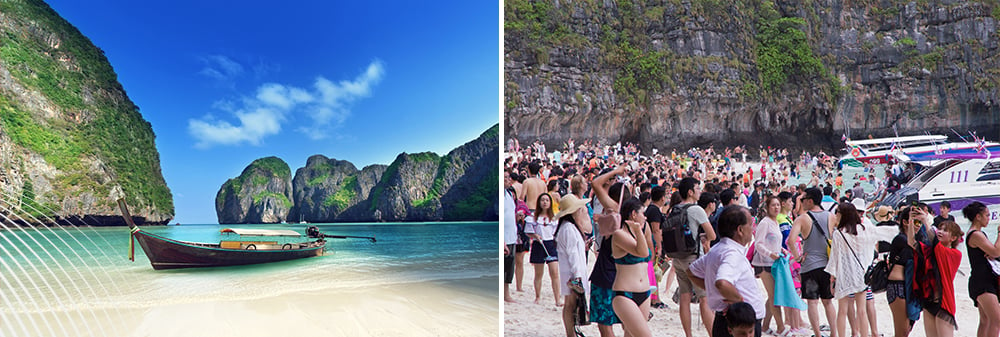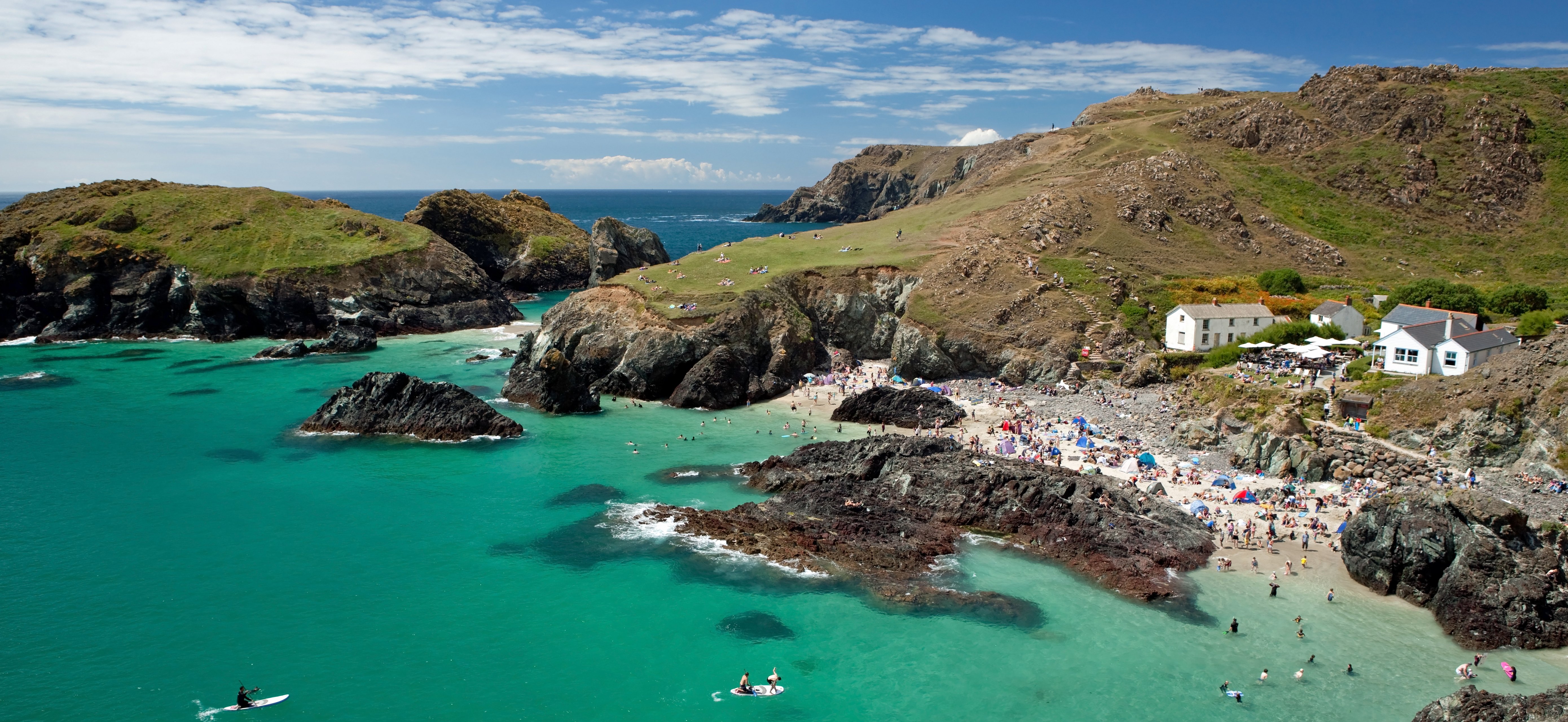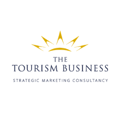The Marketing Solution to Overtourism

Overtourism is a hot topic right now, with many destinations focusing on how to combat this. But why do we have overtourism? To put it succinctly, I feel it’s all marketing – either over marketing or under marketing. Read on for my ideas on how we can tackle this challenge to our industry.
One of the most pertinent quotes from the recent Skift Europe Forum was from Salli Felton of the Travel Foundation, who stated that ‘tourism is eroding the very destinations we are sending people to, surely this can’t be the legacy of our industry’. A sad, and unfortunately true sentiment – so what role does marketing play in this?
The Popularity Problem

Marketing, in its many forms, is what ultimately drives us to visit destinations. Take the world famous Maya Bay on Koh Phi Phi Leh, stage of the film ‘The Beach’ with Leonardo DiCaprio. Only last week it was announced that this beach is set to remain closed until 2021. This is due to the 5,000 visitors per day that were visiting, which has decimated the ecology of the area. Now, I won’t go into my opinion on this half measure of allowing just 2 years for this ecology to reinvigorate (it can take up to 10,000 years for a coral reef to reform!), but the marketing from the film ‘The Beach’ is certainly to blame for this surge in popularity.
Closer to home here in the UK, the old Botallack mines in Cornwall are the setting of popular BBC drama Poldark. This has led to visitor numbers booming in recent years while just a few miles up the road at Geevor tin mine, visitor numbers are dwindling despite an arguably better visitor experience.
Sticking with Cornwall, Kynance Cove, owing to one lovely image posted on social media in 2017, has now been flooded with tourists for the last 2 years. This has severely detracted from the visitor experience and has resulted in Visit Cornwall stopping all promotion of the area. Meanwhile, many other cornish coves and beaches remain beautiful and quiet, even during the height of summer.

Broadening our gaze internationally, places likes Japan have been acutely aware of overtourism to Tokyo and Kyoto for years and are trying to redress this.
These fantastic places to visit are genuinely victims of their own success. Whether it’s digital and social media, word of mouth marketing, film / TV marketing and PR, the places that suffer with overtourism have been ‘over marketed’ and not necessarily through any fault of the destination. They have significant market awareness and exposure, and visitors are flocking in the hundreds and thousands and tens of thousands for the experience.
The Marketing Solution
If overtourism is down to over marketing, then the destinations that aren’t getting enough visitors are being under marketed. Places that aren’t attracting tourists clearly have a profile issue, as people either don’t really know about them or aren’t given a compelling enough reason to visit.
So, while marketing is the cause of overtourism, I believe it is also the cure. This can be achieved with two different strategies…
1. Supercharge Your Off Peak Campaigns
Overtourism is often down to timing – too many visitors at the same time. So if we could redistribute these numbers throughout the year, we could solve an issue here. How can we do this? Well, to start with, here are three ideas:
- Identify alternative audiences that could visit at other times of year, rather than during peak times like during school holidays. Think about audiences such as mums with preschool kids, empty nesters or millennial couples. We produced a game changing shift in the tourism to a British seaside town by targeting different audience demographics (see our Visit Eastbourne case study)
- Highlight the virtues of off peak and out of season visits to your audiences in a more compelling way – it’s less busy, it might be cheaper, you might have to queue less etc… overall making for a superior visitor experience than during ‘rush hour’
- Brand your off peak season as something special and make it an aspirational choice. Highlight what makes your destination special during the quieter times and push a creative campaign which focuses on this messaging, rather than how just how cheap it is.

2. Market Your Other Destinations Better!
Like I said, if overtourism is down to over marketing, then undertourism is down to under marketing. Let’s start refocusing our marketing efforts on the places that aren’t visited, and tease out the incredible experiences people can have there. Japan has been doing this for years, consistently working to promote destinations outside of Tokyo and Kyoto to drive visitors from these incredibly popular places to less well known areas.
Tourism trends can also play nicely into this strategy, with many looking for more unique, personalised and authentic experiences. We can market our lesser known places by tapping into these visitor motivators and, at the same time, rebalance the share of the visitor economy and support more of our struggling and excellent tourism providers.
Let’s get started
As tourism marketers, we have the power (and responsibility) to rebalance overtourism, by directing more efforts to creative off peak and out of season campaigns, as well as activating compelling marketing of the lesser known yet equally fantastic tourism experiences our countries have to offer. I know it’s not easy, but we’ve done this successfully for national and international destinations alike – so trust me, it works!
While marketing is the cause of overtourism, I believe it is also the cure. Click To TweetIf you are having issues with overtourism, there are answers. If we want to protect our most cherished destinations and more evenly spread the benefits of a thriving visitor economy, all we need to do is be a bit more creative and effective with our marketing – if we show people alternative times and places to visit, they will follow.
Anthony Rawlins is the Founder and CEO of Digital Visitor with over 15 years experience in crafting successful marketing strategies for the travel and tourism businesses. He has worked with leading organisations in every part of the industry including airlines, cruiselines, global hotel chains, destinations and attractions. Regarded as a visionary by many industry leaders, through his scientific background, data interpretation expertise and proclivity for creativity, he has a proven track record in accurately predicting future trends. Combined with expansive industry knowledge and pragmatic and commercial mindset he’s has been able to effectively translate these trends into actional strategies and tactics for Digital Visitor’s clients.










